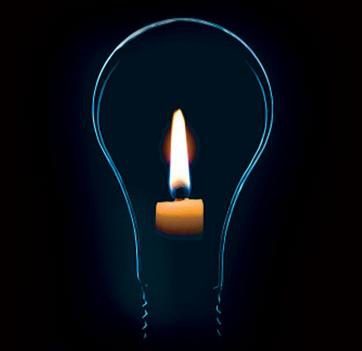When it comes to levelling-up homes in 2022, there’s one thing that’s got everyone buzzing: smart
home automation. Having a home that listens to you and makes you not miss being able to have a
private butler is a pretty powerful incentive; so the interest in smart homes is well-deserved.
However, for first-time adopters in Sri Lanka, a burning question might be, what happens to a smart
home when the power goes out?
Can a smart home function? And what happens when the power comes back? Will your smart home
function the same as before?
We’re here to answer your questions.
It’s Not all that Different to a Normal Home
The first thing to note is that a smart home reacts almost the same as a non-smart home. When the
power is out, many things we’re accustomed to don’t work – that’s just fact of the matter. Appliances
in a smart home and a normal home can’t usually function when there’s no electricity.
It’s More Energy-Efficient
Of course, if you have solar power or a backup generator, you could power appliances and lights in
your normal or smart home for a while. In this scenario, the upside of a smart home is that your lights
and other appliances are either likely to be smart devices themselves or controlled by smart devices
(e.g. normal appliances that are plugged into smart switches or sockets) or by a smart home system.
What’s the benefit of this? Smart devices and smart lights tend to help you lower the amount of
energy you consume. Many smart devices can be programmed to turn themselves off after a set time.
A lot of smart lights have an in-built light or motion sensor – this helps them turn themselves off when
they are not needed. Homes that have a smart Weather Station can ensure that their heating and
cooling systems expend the least amount of energy needed to maintain your desired temperature, by
making use of climate condition data collected by external sensors.
What’s the point of all this? When you’re using a backup source of power, you need to be careful to
be as efficient with your energy consumption as possible. Smart homes? They tend to be a lot better
at this than normal homes.
Will you get Locked In?
Not really. If you’re worried about using smart door locks, don’t be. Yes, they won’t function as usual
when there’s no power being fed into them. Nevertheless, it doesn’t mean that they aren’t still
functional. Smart door locks come with alternative mechanisms to use in instances like these. Many of
ours, for example, have traditional keyholes that can be used to operate the doors in a pinch.
What about the roller gates in your garage? While you may not be able to control them remotely or
expect them to function in sync with your smart home system, they have battery backups that will
work in case the main power is cut off.
Will you Have Control Over the Lights?
What about smart lights you might ask? If the power goes off during the day and comes back in the
middle of the night, will they blind you by coming back on full force? Do you have any control?
That’s up to you – it depends on the type of device you pick and the type of settings in your system.
You can have some lights that stay off by default even when the power is back. Others could simply
resume being in the same state they were in when the power was cut off. Yet others could have their
basic response overridden by your smart home system depending on the time of day, for example.
At the end of the day, it’s not all that different when the power goes out in a normal home versus a
smart home.

Editorial Staff at Shinrai Smart Home are experts on smart home technologies.


Recent Comments